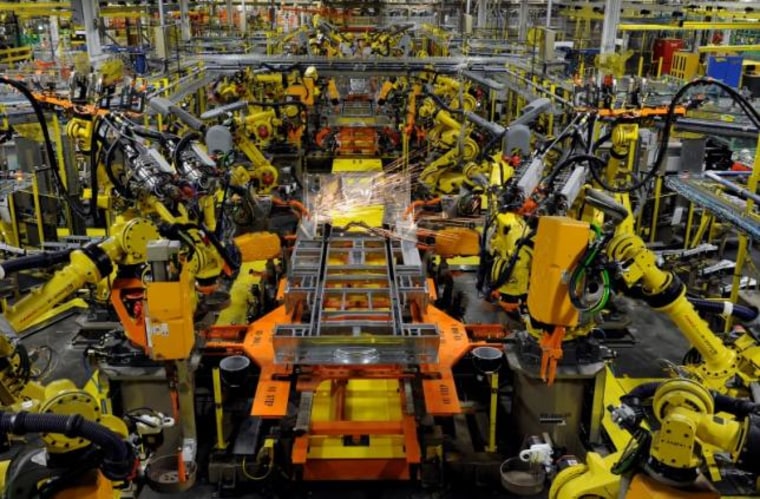President Donald Trump's promises of "tremendous" economic growth need to take a haircut.
"We're looking at a 3 percent, but we think it could be 5, it could even be 6. We're going to have growth that will be tremendous," Trump said at a September news conference where he projected the impact of his tax plan overhauls.
But according to 50 economists surveyed by the National Association for Business Economics, the economy will grow a solid 2.3 percent this year and 2.5 percent in 2018, Those rates would be up from 2016's anemic pace of 1.6 percent.
Still, those rates are below the 3 percent to 4 percent growth that Trump has promised to bring about through steep corporate and individual tax cuts and more spending on roads, airports and tunnels. Most of the economists surveyed assume that a tax reform package will be approved by Congress this year.About two-fifths expect an infrastructure spending proposal to pass this year, while rest forecast it will happen in 2018 or beyond.
And the nonpartisan Tax Policy Center has estimated the cost of Trump's tax cuts intended to jump-start those economic figures would cost $10 trillion over the next 10 years.
The survey also found that 70 percent of economists think financial markets are too optimistic about the impact of Trump's proposals, should they be enacted. The S&P 500 stock index has risen about 6.5 percent since the presidential election on anticipation of faster growth stemming from Trump's policies. Shares slipped last week as Congress and the Trump administration failed to agree on a health care proposal to replace the Obama administration's Affordable Care Act.
The economists surveyed work for companies, trade associations and in academia. The results were compiled by Timothy Gill, an economist at the American Iron and Steel Institute; Steve Cochrane, an economist at Moody's Analytics; and David Teolis at General Motors, among others.
The survey found economists more optimistic about hiring than they were in a previous survey, conducted in December. They now forecast employers will add an average of 183,000 jobs a month this year, up from their earlier forecast of 168,000. The new figure is roughly in line with last year's average of 187,000.
Most of the economists assume that Trump's tax proposals will pass in the second half of this year, though about one-fifth expect that it will take until next year.
Most do not expect an infrastructure package, even if it passes this year, to boost the economy until 2018, the survey found.
Trump's tax proposals will face many challenges before they become law. Most economists surveyed by NABE do not expect they will include a proposal from House Republicans to tax imports and exempt exports. That proposal is forecast to raise $1 trillion in revenue over a decade. Without it, the tax plan will need to raise other revenue or will make the government's budget deficit larger
